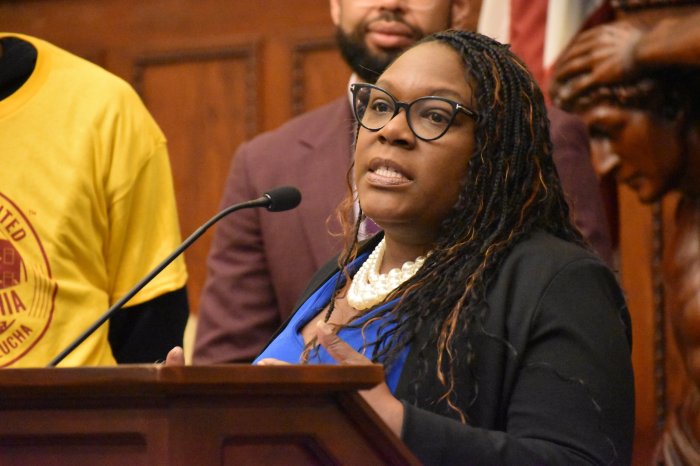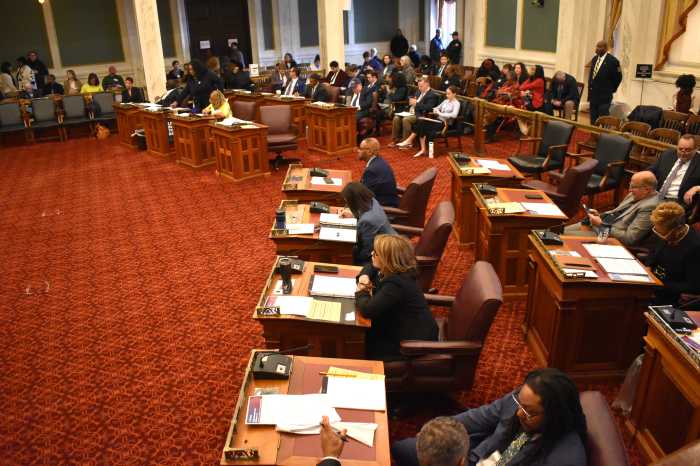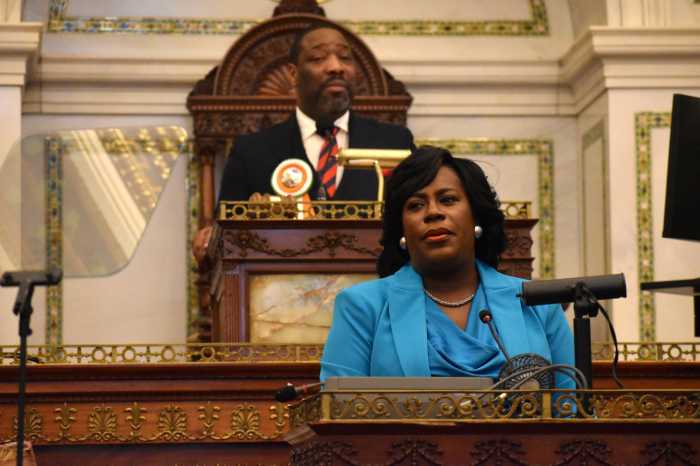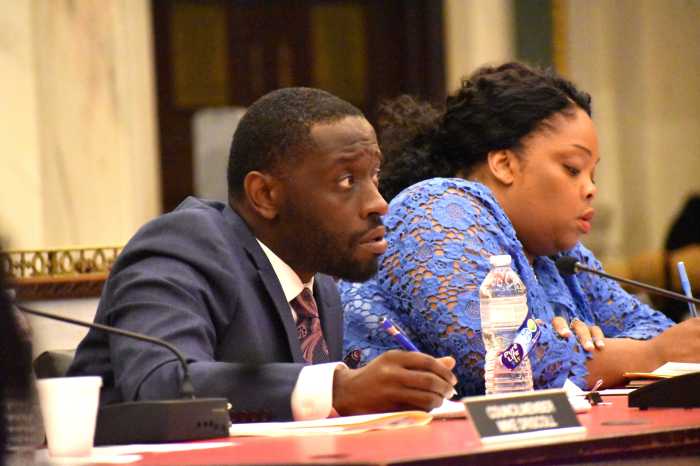Philadelphia’s landlord-tenant office — which has drawn significant scrutiny from progressive lawmakers and housing advocates following a series of shootings last year — is planning to phase out its eviction activities and may shut down by September.
Mayor Cherelle Parker signed City Council legislation in June that required the LTO to procure $2 million worth of liability insurance for each lockout and an additional $4 million annual policy.
The for-profit office, which conducts the majority of the city’s evictions, has not been able to find an insurer and its current policy expires at the end of next month, Marisa Shuter, the court-appointed landlord-tenant officer, told property owners in a recent email.
Shuter said her office will no longer accept new eviction judgments, known as writs of possession, beginning Aug. 12. The LTO will stop taking final lockout orders, called alias writs, Sept. 9, according to the message.
“Assuming no new insurance is procured, the office will be shutting down at the end of September,” Shuter added in the email.
In some cases, landlords may be required to restart the eviction process with the Sheriff’s Office, the local court system said in a notice to attorneys.
If Shuter fails to extend the insurance policy, T. Francis Shields, president judge of the Municipal Court, could decide to appoint a new landlord-tenant officer or potentially leave the post vacant. There has been no word on his decision.

Should the LTO close permanently, lockouts would likely fall to the Sheriff’s Office, which already conducts some evictions. Most landlords have historically utilized the LTO because it charges cheaper fees.
The Sheriff’s Office, in a statement Thursday, said it accepts the additional responsibilities, adding that the LTO’s decision “does not disturb our operations in any way.”
“The Philadelphia Sheriff’s Office will continue to ensure that all eviction proceedings are carried out with fairness and compassion, recognizing the impact on individuals and families in our city,” the statement continued.
Though the LTO is a separate entity and not part of the court system, state law allows the president judge to select the landlord-tenant officer. Traditionally, that person has been a private attorney.
Elsewhere in Pennsylvania, a municipal or county agency, usually a constable, carries out evictions. In 1970, the constable system was abolished in Philadelphia in favor of the LTO.
The landlord-tenant officer, in exchange for a fee paid by landlords, hires armed security contractors, referred to as deputies, to evict renters who have been ordered out of a property.
Attempts to reform the LTO ramped up last year after deputies discharged their guns during three evictions over the span of several months.
In March 2023, Angel Davis was seriously injured when a deputy shot her in the head during a lockout. An LTO deputy fired at a tenant’s dog in June of that year. A month later, Latese Bethea was shot during an eviction.
Davis’s attorney, Bethany Nikitenko, said she hopes the possible LTO closure “signals the end of the for-profit eviction system in Philadelphia.”

There have been efforts to overhaul the LTO in Harrisburg, and the state House of Representatives passed legislation in the spring increasing oversight and adding protections for renters.
Though that bill stalled in the Senate, Council did take action on the local level this past legislative term. In addition to mandating insurance to pay for possible injuries to tenants, the Angel Davis Eviction Accountability Act requires deputies to be licensed and receive at least 189 hours of training.
“After her deputies shot two women during evictions last year, triggering two lawsuits to cover millions of dollars for their medical care, it’s no surprise that landlord-tenant officer Marisa Shuter is unable to find someone willing to insure her dangerous for-profit eviction operation,” Councilmember Kendra Brooks, the main sponsor of the bill, said in a statement.
“Every other municipality in the state of Pennsylvania operates without allowing private entities to conduct evictions,” she added. “I am confident that Philadelphia can find a way to do the same.”



























